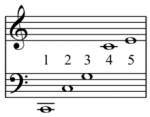|
|

Welcome English learners!
I wish to express my grateful acknowledgment to all the owners of the visual images enhancing this website. They have been ‘borrowed’ without giving their authors the credit they deserve.
¤ HOW to SURF this SITE
The best way to […]

«Good stuff, if brief, twice as good.» – It was an Aragonese writer that said that (Baltasar Gracián)
Θ
There are two good reasons why English learners should take interest in these expressions of oral tradition.
For one thing, they provide an extraordinary word bank you […]

•→Commenting-on-the-news/⇐[speaking]
•→http://www.englishpage.com/readingroom.html⇐
World news for students of English in three levels ⇑ Dead easy!
¤ Special English
A simple form of the English language, used by a public radio station called Voice of America, run by the United States government in Special English programs […]

•→ English greetings ←[introducing yourself & other people]
← There are many ways of bidding someone farewell →
Some are very specific;
others restricted to some territories.
¤ Vagueness in spoken English
Vague language […]

•→ www.howjsay.com⇐ / •→MacMillan Online Dictionary⇐
⇐ Tips & links
•→ speechactive.com/english-consonants-ipa-international-phonetic-alphabet/ ⇐
•→cambridgeenglishonline/Phonetics_Focus/⇐[tasks]
∞ Minimal Pairs ⇒[01] ⇔ [02] ⇔ [03]⇐
• Find the odd one out: which word does not rhyme with the others?
⇒[01] ⇔ [02] ⇔ [03] ⇔ [04]⇐
©→U maze← [quiz] → O maze←© […]

Learning strategies or study skills ⇑ determine the approach for achieving the learning objectives. The strategies are usually tied to your needs and interests to enhance learning and are based on many types of learning styles.
¤ Learning strategies ← ¤ Guessing meaning from context ←(A favourite strategy)
•→Better […]

• Speaking generally, there are two types of language learner:
The first type gets really worried about making errors or mistakes. They think about everything that they say carefully. Sometimes, if they start to say something, and then realise they have made a mistake, they will stop and correct that mistake, […]

The best way to improve is to listen to English. A lot. There’s no way around it; you have to spend hours and hours listening to people speaking English. Listen to things that interest you. If you don’t enjoy something, it’s going to be hard for you to continue. You’ll get bored and […]

•→www.thefictiondesk.com/ten-ways-to-improve-your-writing-for-free/⇐
¤ 6 ways to improve your English writing skills
Today it is very trendy to focus primarily on communicative skills and neglecting writing as a method of learning an English language. Though it is essential to make yourself understood in speech, writing is equally important in the […]

•→Sounds of The Alphabet⇐
¤ English Spelling
Chaotic though it may seem, the English spelling system has its own rules, like most languages do. English borrowed thousands of words from all over the world, which is why there are so many exceptions.
Φ Spelling Rules →[01]← / →[02]←
•→ […]

In linguistics, one of many styles or varieties of language determined by such factors as social occasion, purpose, and audience. More generally, register is also used to indicate degrees of formality in language use.
Formal Style Informal Style Legal English Levels of Usage ¤ Formal & informal English: explanations & tips…
abril 15th, 2015 | Tags: style, quiz, tips | Category: FunctionaLang |

⇔[Listen & Read]⇐
⇐ British Life & Culture ⇒[01]⇔[02]⇔[03]⇐
What Made The Crocodile Cry? – 101 questions about the English language.
Susie Dent draws on her popular television coverage of curious questions about English […]

•→ http://photographicdictionary.com/body-parts ⇐
• Idioms related to the body . . . →[01] ⇔ [02] ⇔ [03] ⇔ [04]←
· · · click the parts for idioms . . . →[01]← / →[02]← / →[03]←
→[quiz 01]← / →[quiz 02]← [body idioms]
[…]

Stress: an essential element of rhythm, which is the most distinctive feature of the English language. Word stress is not used in Japanese or Spanish, where each syllable is pronounced with eq-ual em-pha-sis.
The biggest difference in the “music” of languages is the way we speak syllables. All languages can divide […]

Intonation – Intonation is the rising and falling sounds of the voice when speaking. Intonation (Part 2) – Phrasing – In addition to the intonation of a statement, there is another aspect of speech that indicates meaning — phrasing. Intonation (Part 3) – Contrast – Once the intonation of new information is established, you’ll […]

THE LIVING SISTERS ⇓ Video by Michel Gondry [2011]
How are you doing? How are you doing?I’ll be fine, how about you?I’m fine too
How is it going? How is it going?Yes it goes, what about you?It goes for me too.
Nothing new, can’t […]

The (-ed) ending of regular past forms has three sound realizations: [-d] [-t] [-id], depending on the sounds just before it.
• If the verb ends in a voiced phoneme, the ‘-ed’ ending sounds like [-d]
• If the verb ends in a voiceless consonant […]

⇒ [s] vs [∫] ⇐
[s] vs [z]
‘hiss’ vs ‘buzz’
•→www.jamesabela.co.uk/beginner/pluralpron.pdf⇐
•⇒Pronunciation of words ending in -S ⇐ When we pronounce the –s in the words ‘dogs’,’cats’, ‘dishes’, ‘lives’, and ‘it’s’, do we pronounce […]

•→ would – contractions ⇐
◊ How to understand native speakers’ questions ⇓
⇐ Click for TONGUE TWISTERS
There are hundreds on the Net, but you’ll have enough with these for quite a while. Here’s some good ones for Spaniards:
«Six Spanish students study […]

English has several forms which express future events. The form we choose depends on how sure we are that something will happen, whether we want something to happen, or whether we are talking about ourselves or others. ASPECT is much more important than TIME.
⇒Predictions/Statements of fact/Intentions/Arrangements/Scheduled events⇐
[…]
|
|


















